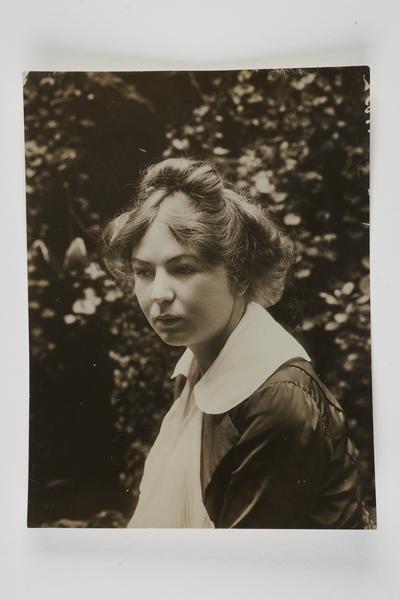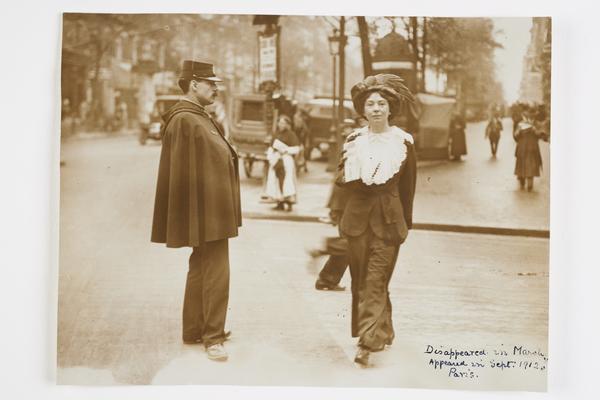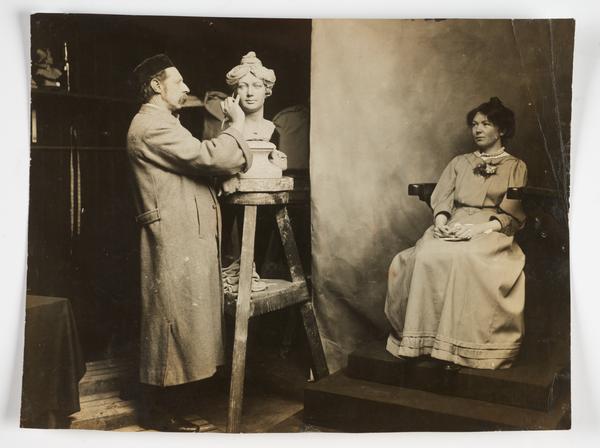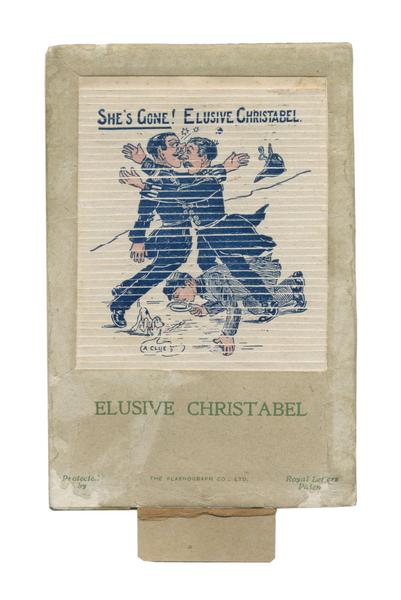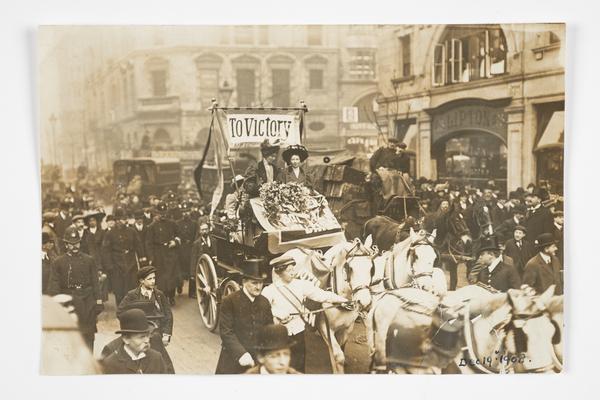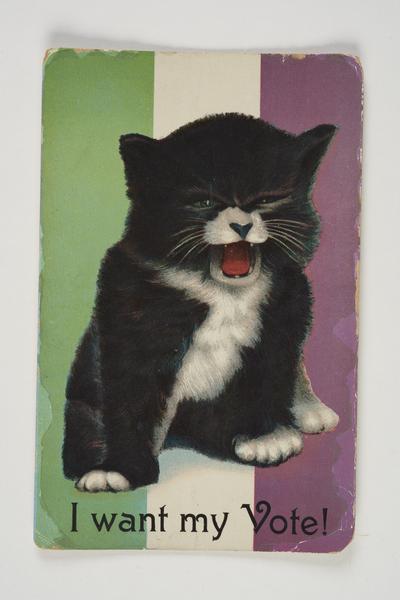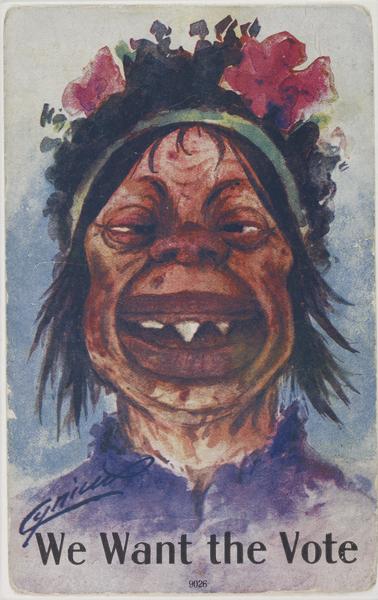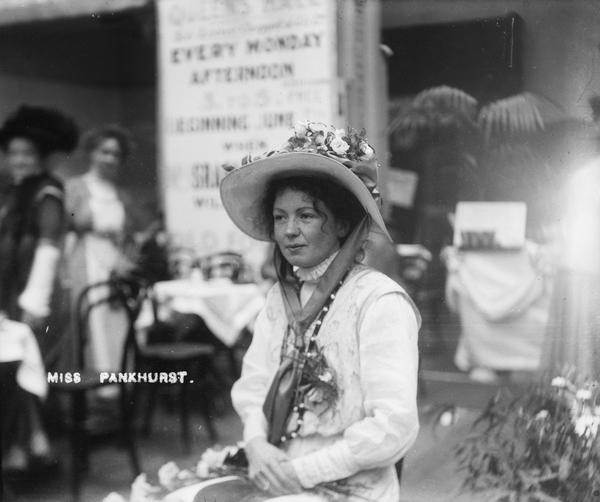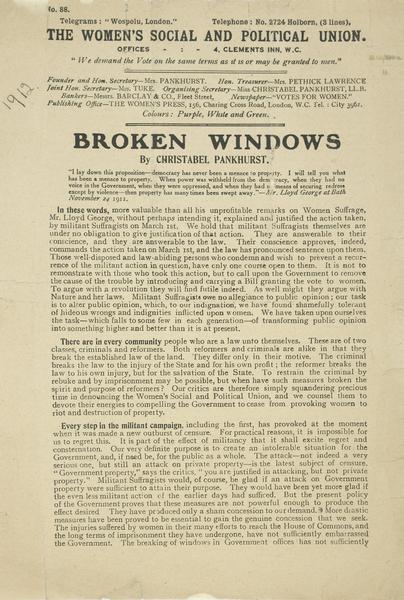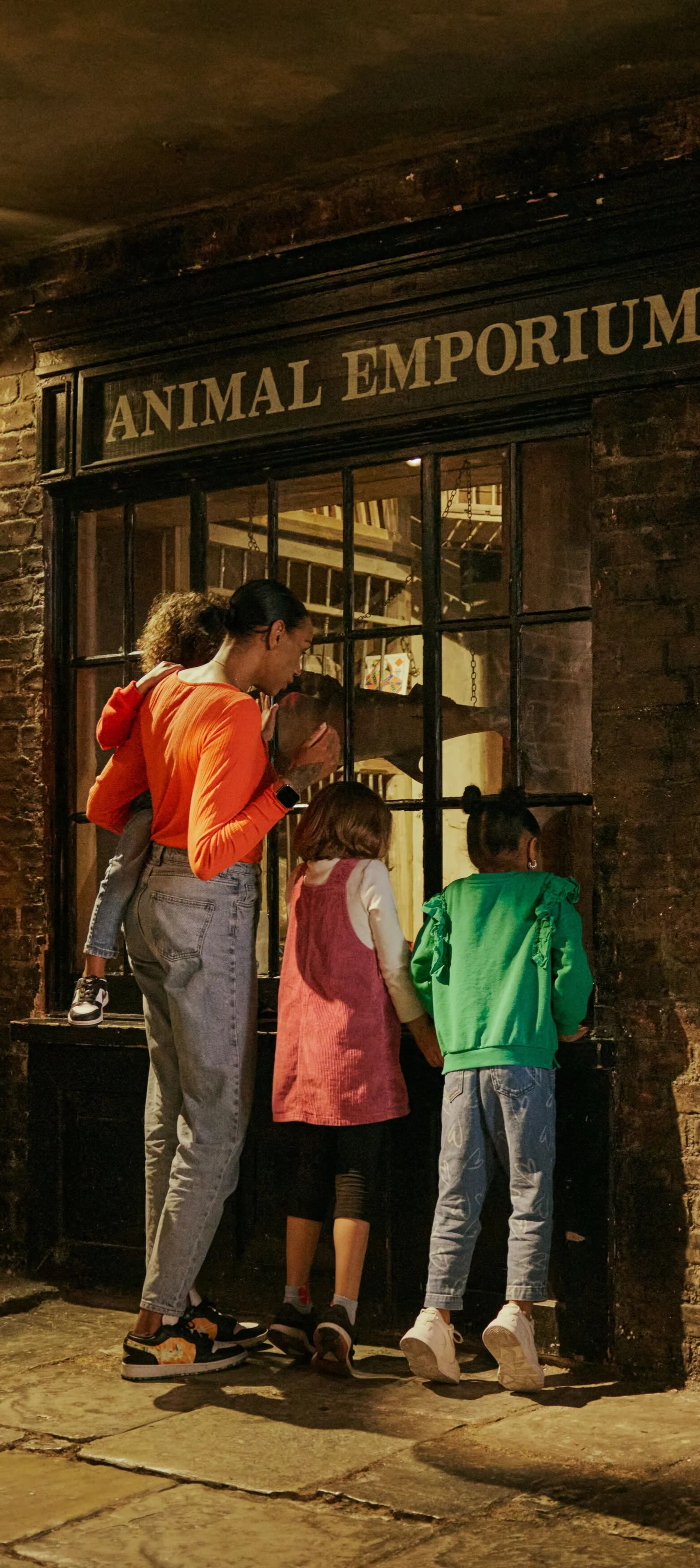Christabel Pankhurst: Suffragette leader
As a leader of the Women's Social and Political Union (WSPU), Christabel Pankhurst championed increasingly radical action to win women’s right to vote.
1880–1958

Leading the fight
It started with heckling MPs. Then marches. Then window-smashing.
Between 1903 and 1914 Christabel and her mother, Emmeline Pankhurst, led the WSPU and its supporters – who were known as Suffragettes.
Christabel was an icon of the movement, and its chief organiser. She was a powerful speaker, an inspirational leader and a smart strategist.
Her confrontational tactics pressured the government, and helped change women’s role in society.

Christabel Pankhurst was an inspirational leader of the Suffragettes' campaign.
Christabel's life before the Suffragettes
Christabel Pankhurst was born in 1880. Her parents were progressive thinkers, and their house in Manchester became a gathering place for social reformers.
A young Christabel once said to her mother: “How long you women have been trying for the vote. For my part, I mean to get it.”
Christabel studied law at the University of Manchester, but as a woman, wasn’t allowed to work as a lawyer.

Christabel Pankhurst meets with other members of the WSPU, including her mother, Emmeline, second from right.
Christabel helped found the WSPU
In 1903 she co-founded the WSPU with her mother and a few other women. She quickly became Organising Secretary, a top position in charge of developing the campaign.
The WSPU used new tactics to grab the attention of the government and newspapers. Their motto was “Deeds, not words”.
The WSPU was women-only, and rejected making alliances with the male-dominated political parties. It campaigned on one issue: women’s right to vote.
Christabel’s sisters Sylvia and Adela were also part of the WSPU, but they believed the campaign should also cover broader social issues affecting women, such as poverty.
Syvlia and Christabel’s disagreements over policy caused a rift between them which lasted decades.
“How long you women have been trying for the vote. For my part, I mean to get it”
Christabel Pankhurst
Christabel was a radical, inspiring leader
Christabel Pankhurst and Annie Kenney were the first Suffragettes to be sent to prison.
In 1905, the pair interrupted a Liberal Party meeting. After being dragged outside, Christabel was arrested for spitting at a police officer. Media attention poured in. From then on, heckling politicians and other civil disobedience became a key tactic.
Christabel became famous as an inspirational leader, but the Suffragettes faced plenty of opposition. Our collection includes an example of hate mail sent to Christabel – which only goes to show the courage it took to continue.
By 1912 Herbert Asquith’s Liberal government was still refusing to give women the vote. The Suffragettes' Black Friday demonstration in November 1910 had been met by police violence, prompting a change in strategy.
Christabel and her mother started a campaign of window-breaking, bombing and arson. Christabel justifies the tactics in a leaflet in our collection: “the reformer breaks the law… for the salvation of our State.”

Windows broken as part of the Suffragettes' campaign.
Christabel's time in France
Christabel fled to Paris in March 1912 to avoid charges of conspiracy, but continued to lead the WSPU from France.
When the First World War began in 1914, the government released all Suffragette prisoners. Christabel returned to England, pausing the campaign in order to support the British war effort.

This photo of Pankhurst in Paris appeared in several newspapers in 1912.
Christabel Pankhurst tried to be the first female MP
As the First World War drew to a close in 1918, Prime Minister David Lloyd George’s government passed a law allowing more people to vote in elections – including 8.4 million women over 30. Women could also stand as MPs.
In the 1918 election that followed, Christabel tried to become the first female Member of Parliament. She failed however, losing the vote to another candidate.
Religion and family

Emmeline, Christabel and Sylvia Pankhurst.
In 1921, Christabel moved to Canada, and later to California. She became a member of the Second Adventist Movement, which believed in the second coming of Jesus Christ.
In 1936 Christabel was appointed a Dame Commander of the Order of the British Empire for public and social services.
Christabel and Sylvia both went to their mother’s funeral in 1928, and during the 1950s the two sisters reconnected.
Having settled in California, Christabel adopted a daughter, Betty. Christabel died there of a heart attack, aged 77, in 1958.


